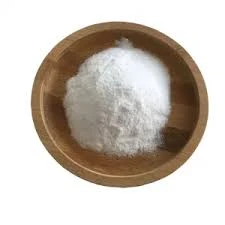Chemical Used for Cooling Water An Overview
Cooling water systems are vital in various industrial processes, power generation, and HVAC (heating, ventilation, and air conditioning) applications. These systems help dissipate heat produced during operations, ensuring optimal performance and efficiency. One critical aspect of maintaining these systems is the use of chemicals to ensure the water remains free of contaminants, corrosion, scale formation, and microbial growth. Understanding the chemicals employed in cooling water systems is essential for operators and engineers to maintain system integrity and functionality.
Types of Chemicals Used
1. Corrosion Inhibitors One of the primary challenges in cooling water systems is corrosion, which can lead to significant equipment damage and failure. Corrosion inhibitors are chemicals added to cooling water to form a protective film on the surfaces of pipes and heat exchangers. Common corrosion inhibitors include phosphates, chromates, and organic inhibitors. These chemicals effectively reduce the electrochemical processes that lead to corrosion, extending the lifespan of the equipment.
2. Biocides Cooling water systems are susceptible to biological growth, including bacteria, algae, and fungi. These microorganisms can form biofilms that impede heat transfer and foster corrosion. Biocides are chemicals used to control microbial growth. Chlorine, bromine, and non-oxidizing biocides are among the most widely used. Each has its own application conditions and effectiveness, and the choice depends on the specific cooling system requirements and environmental regulations.
3. Scale Inhibitors As water evaporates in cooling towers, the concentration of dissolved minerals increases, leading to scale formation. Scale can reduce heat transfer efficiency and create blockages in pipes and equipment. Scale inhibitors are utilized to prevent or minimize deposition. Polyphosphates, acrylates, and carboxylates are commonly used scale inhibitors that work by disrupting crystal growth and dispersing particulate matter, ensuring smooth operation of the cooling system.
chemical used for cooling water

4. pH Adjusters Maintaining the correct pH level in cooling water is crucial for the effectiveness of inhibitors and overall system health. Chemicals such as sodium hydroxide or sulfuric acid are used to adjust the pH to a suitable range, typically between 6.5 and 8.5. This range helps optimize the performance of other chemicals, controls corrosion rates, and reduces the risk of scaling.
Environmental Considerations
The use of chemicals in cooling systems comes with environmental responsibilities. Many industries are subject to stringent regulations regarding chemical discharge and usage due to potential environmental impacts. The selection of cooling water treatment chemicals must consider not only effectiveness but also safety and regulatory compliance. Furthermore, alternative treatments, such as using biodegradable chemicals or implementing water conservation techniques, are gaining popularity to minimize environmental impact.
Conclusion
The proper management of cooling water systems is indispensable for efficient industrial operations. The chemicals used in these systems play crucial roles in preventing corrosion, controlling microbial growth, and minimizing scale formation. A well-designed chemical treatment program tailored to specific operating conditions can significantly enhance water circulation systems' efficiency and reliability. As technology progresses and environmental regulations tighten, the industry will continue to evolve, seeking greener and more sustainable solutions for cooling water treatment while maintaining efficiency and effectiveness. Understanding these chemicals is paramount for operators, ensuring that cooling systems function optimally and sustainably.

